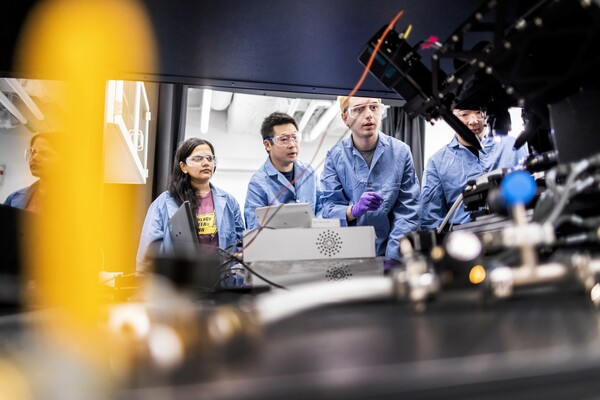
Image: Mininyx Doodle via Getty Images
Unused prescription pain pills leftover from medical procedures, major surgeries, or even minor surgeries like wisdom teeth removal pose a risk of misuse in the home—with no easy way to dispose of the medication. Flushing the pills down the toilet can cause the drugs to get into the local water supply. The Food & Drug Administration recommends crushing them and mixing them with cat litter, and then throwing them away in a sealed plastic bag, but few do so.
A team of students from the School of Social Policy & Practice—made up of Matt Miclette, Memphis Madden, Sarah Parkinson, and Anne Futterer—has proposed a practical solution: a program that enables people to take unused medication to drop-boxes placed inside pharmacies in Philadelphia. The students are piloting a six-month study to determine the feasibility of their plan.
In March, competing as “Take Back Our City,” the students won the Penn Public Policy Challenge with their proposal. Sponsored by the Fels Institute of Government, the Challenge is a real-world competition in which policy-minded students formulate ideas to improve Philadelphia. The team moved on to compete with student-led teams from other institutions across the country at the 6th Annual National Invitational, where they were finalists.
The team’s proposal is designed to address the city’s opioid use epidemic by expanding a little-known and underused prescription drug take-back program. Currently, there are 15 prescription drug take-back boxes in the city, but 13 of the drop-boxes are located in police stations, a likely deterrent. The team’s plan would greatly increase the number of prescription drop-boxes in Philadelphia, placing them in pharmacies across the city.
To maximize the use of drop-boxes, the team would help pharmacies establish a mobile message reminder system that texts people when controlled medications have expired.
We believe you should be able to return your prescription medications right from where you got them in the first place—the pharmacy,” Miclette says. He was a subcommittee-member on the City of Philadelphia’s Task Force to Combat Opioid Addiction.
The team’s pilot study has received support from the Philadelphia health commissioner and bipartisan support from City Council.
The team chose to study a program to expand prescription take-backs in the city due to its potential to protect youth who may experiment with prescription opioids they often get for free or at low cost from family members or friends.
According to figures released by the Philadelphia Medical Examiner’s Office, overdose was responsible for 910 deaths in Philadelphia last year.
“I’ve lost several classmates since graduating,” says Parkinson. “For many of these young people, their battle with opioid addiction started with prescriptions in their parents’ medicine cabinets.”
By expanding drug take-backs to pharmacies in Philadelphia, the team members believe the “Take Back Our City” program would put into place critical steps to address the city’s opioid epidemic: Reduce access to the prescription drug supply, and prevent prescription opioid misuse.

Image: Mininyx Doodle via Getty Images

The sun shades on the Vagelos Institute for Energy Science and Technology.
nocred

Image: Pencho Chukov via Getty Images

nocred